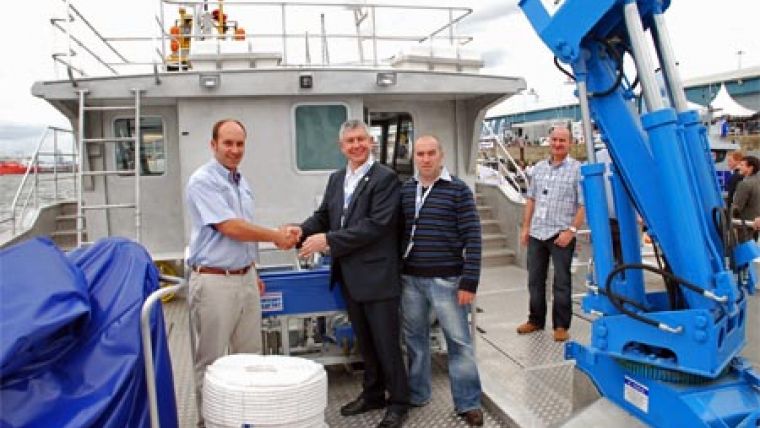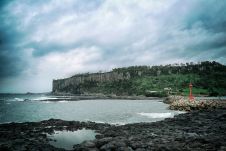Research Vessel Handover at Seawork
A search which began three years ago culminated in the handover of a new research vessel on the floating pontoon at Seawork 2009 in Southampton last week. The Aluminium Boatbuilding Company of nearby Hayling Island officially turned the 14m LOA, 6m beam catamaran RV Marisa over to Professor Stephen Holloway, Pro-Vice-Chancellor of the University of Liverpool.
In 2006 the University of Liverpool began the search for a new coastal research vessel. The University has been carrying out marine biology and oceanographic research since 1881 and has operated research vessels of various types since 1885. However, the nature of the science needing support in the 21st century demanded new type of research vessel.
The requirements include the ability to work in the coastal waters around the UK and in inshore areas such as estuaries and bays. The vessel had to be able to sample and process on board environmental data, support the deployment and retrieval of smart buoys and sampling equipment and to be able to obtain sample and data on all aspects of the marine ecosystem from sea floor dwelling worms through plankton to fish.
The catamaran designed by the Aluminium Boatbuilding Company provides a vessel to meet these diverse needs. Capable of taking up to 12 students and a crew of 4, it can operate as a day boat sampling around the Irish Sea but with four berths can also undertake extended cruises to more distant regions. The on-board laboratory space provides analytical facilities for monitoring water chemistry while the lifting gear allows deployment of a wide range of samplers and moored arrays via the side gate or stern gantry. The vessel is equipped for biological sampling using grabs, cores and a variety of nets including beam and otter trawls. The observing area on the wheelhouse roof provides for the study and survey of sea birds and marine mammals.
On board deck equipment includes a Grove 8t/m deck crane and a Spencer Carter TW4 trawl winch.
The Catfish Survey Cat design provides a large and stable work area while the ability to plane provides for cost effective rapid movement between sampling sites, thus reducing unproductive time for well paid technical staff. RV Marisa replaces a converted trawler which could only manage 8 knots. Powered by twin 420hp FPT marine diesels driving conventional shafts and screws, the new vessel planes at 13 knots, cruises at 16 knots and has a top speed of 21 knots laden.
Delivery of RV Marisa coincides with a major reorganisation at the University of Liverpool which sees marine biology, oceanography, marine spatial planning and environmental management coming together within a multi-disciplinary School of the Environment. The vessel will be operated in support of teaching and research by the School and is also available to undertake contract research in collaboration with industrial partners.














